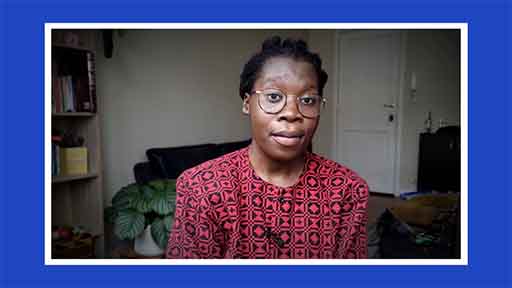1.2 Techniques for creating negative capability
One increasingly popular way of pausing to develop ethical leadership is mindfulness, and the related practice of meditation. Meditation is a way of focusing your mind and body so that they can better concentrate on the present moment, and determine what is important for you to act on in that moment.
The NHS (2022) defines mindfulness as:
… paying attention to what is going on inside and outside ourselves, moment by moment… An important part of mindfulness is reconnecting with our bodies and the sensations they experience. This means paying attention to the sights, sounds, smells and tastes of the present moment… Another important part of mindfulness is an awareness of our thoughts and feelings as they happen moment to moment.
Mindfulness is therefore a way of being fully present in the moment and not letting our minds and bodies get carried away into other worries, times, places.
Meditation is an important aspect of mindfulness. It’s not for everyone and can feel a little awkward at first – particularly for people who like to keep moving and busy – but it’s an increasingly common practice used to alleviate stress, anxiety, pain and depression (Kam et al., 2021); it is also used to improve ‘executive functioning’, ‘the [mental] component that kicks in when you are trying to focus in a distracting setting…[or] monitoring for distracting thoughts, like getting caught in a daydream’ (McCormick, 2022).
Leadership can provoke stress and anxiety, and make people feel low. It can also throw up lots of distractions, while demanding concentration and care. These are probably the reasons why leaders are increasingly turning to meditation as a way of finding calm and connection with the moment. Meditation can help you gain perspective and see ethical possibilities.
It is important to note that although mindfulness is an increasingly influential approach, it can surface unpleasant and even traumatic feelings. Some people stay very busy as a coping mechanism, so that they do not confront these feelings. So if you have doubts about meditation as a potential trigger, it is wise to do more research on it and to consult medical professionals through the NHS or support services available through reputable third party sources, such as your workplace, trade union or a trusted charity.
Other people find stillness through reflecting on a piece of art, or a powerful piece of poetry that appears to reveal something profound about nature and humanity. Black UK-based poets such as Grace Nichols, Raymond Antrobus, and Malika Booker, have written several poems and books that can help people refocus their practice and lives through finding inspiration in literature. The purpose of such activity is to stimulate mental space for reflection on what matters to you, to teach yourself to be still so that you are better placed to act with purpose in the world.
Activity 1 Finding stillness
Watch the following video, where Christy Adeola Braham talks about pursuing ethically purposeful leadership. After watching, make some notes about steps you could personally take to promote good causes.

Transcript: Video 1 Christy Adeola Braham – the challenges of ethical leadership
Discussion
Pursuing ethical leadership is not easy, especially when you’re working in a setting that is not conducive to it. Christy suggests a few things you can do to push for ethical leadership on an issue, or within an organisation. These include:
- maintaining a hobby – poetry, music, and physical activities come to mind
- seeking support from peers – colleagues and mentors can offer emotional and technical support
- working with others to find collective solutions – it’s easy to be overwhelmed by a situation when you’re working on your own. Getting others on board can help with finding creative solutions that you hadn’t considered.

